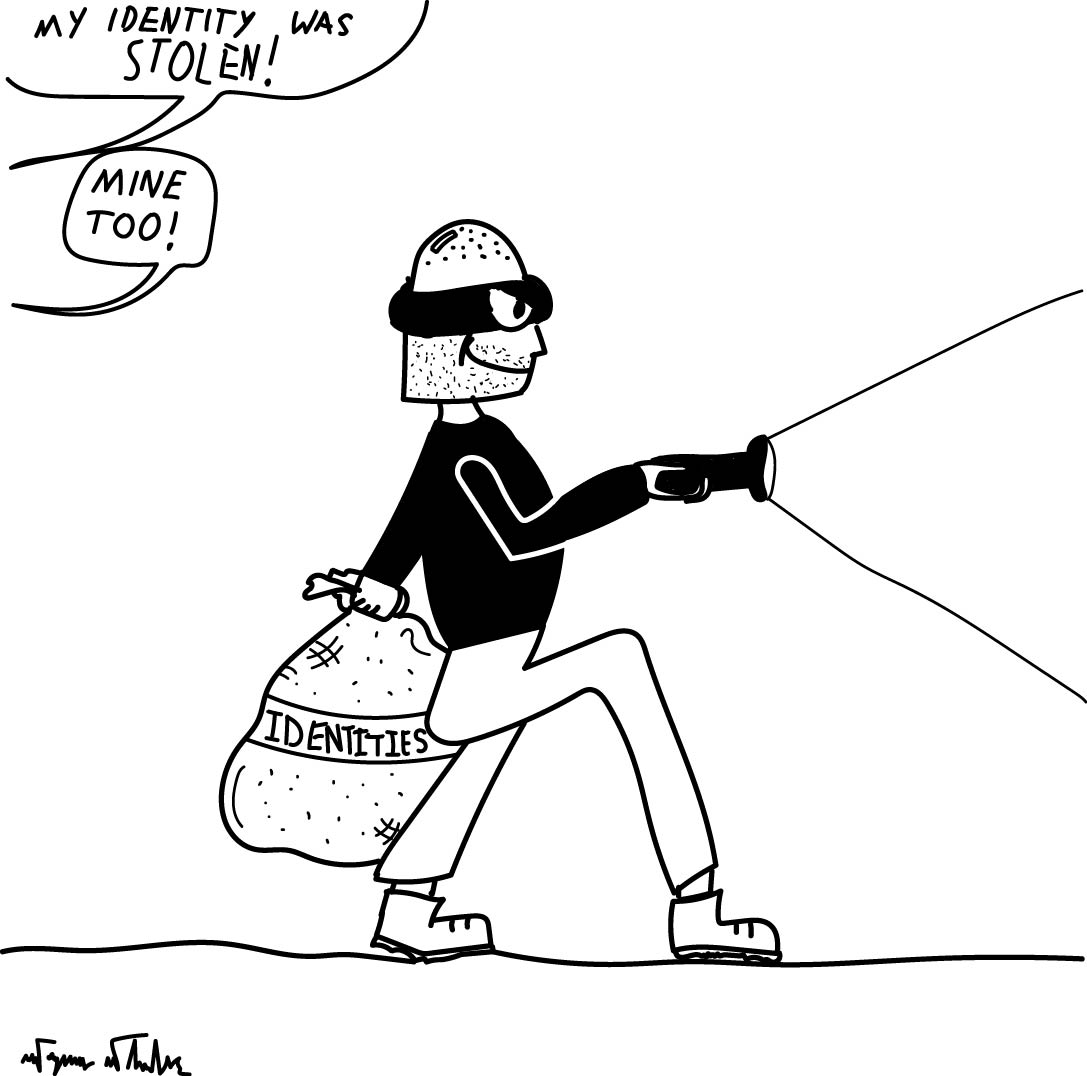The Best Protection Against Identity Theft

Much of my time in financial planning (and many other things) is spent making the case to people they are not victims. Many times, it is abundantly clear that these people I’m interacting with are in fact victims. Of what? Well, too many things to count.
When something outside our control impacts us negatively, we are victims. So every human is victimized multiple times every single day of their life. Some situations are much worse than others, but everyone is a victim. So why would I try to convince people they’re not victims?
Simple: the moment a person leaves the victim mentality and actively pursues that parts of the situation they can control is the moment they are empowered. And empowered, confident people have always had the upperhand in this world. Those people rule the world (hopefully they are doing so in love and not in self-interest, but that’s for another time).
5 different times in my adult life have I been the victim of identity theft. Someone (I have no idea who), somewhere (I have no idea where), with some method (I sorta know what methods) stole my identity. Normally it would be a great compliment for someone to want to be just like me, but when this someone wants to empty me of my net worth, it’s no bueno.
In each of those 5 instances, the financial institution (once was a bank, four times were credit card companies), completely indemnified me. In other words, I have lost $0 to identity theft in my lifetime. I have lost about an hour of my life each time, but I have also gained a valuable story to tell each time.
Identity theft sounds scary and dangerous. In the same way you wouldn’t leave your car with the engine running and the door wide open, you wouldn’t want to treat your personal information (SSN, address, date of birth, account numbers, etc.) as if it couldn’t be used against you. It can and likely will be used against you. But the fear that risk causes can also be used against you.
Many companies offer all sorts of products that are meant to ease your fears regarding having your data breached and used against you. However, if you want to protect yourself, you do not need to buy ID theft protection/insurance.
Instead, you must set up a system to regularly check your accounts for any unauthorized activity. There are exceptions to everything, but in my own household and in the households of all my clients over the years, this is by far the single most effective protection against identity theft and financial fraud.
If you’re unwilling to create and adhere to such a system, you very well may want to send your money to one of these protection agencies. But first, recognize what’s true: those companies are typically only insuring you against the time lost to clean up the mess, only after the mess has been created. Also, know that financial institutions have entire departments dedicated to resolving fraud. Credit card companies are the best at this, but banks (who typically operate the credit cards) are also good at resolution. They are used to making victims of ID theft whole again.
So, check your accounts regularly, and if you have vulnerable people (90% of victims are over 65) in your life, help them check their accounts regularly. If you are a senior, find a trusted person to help protect you. Understand it is YOUR responsibility to educate yourself and protect your loved ones. Don’t expect someone else to do it.